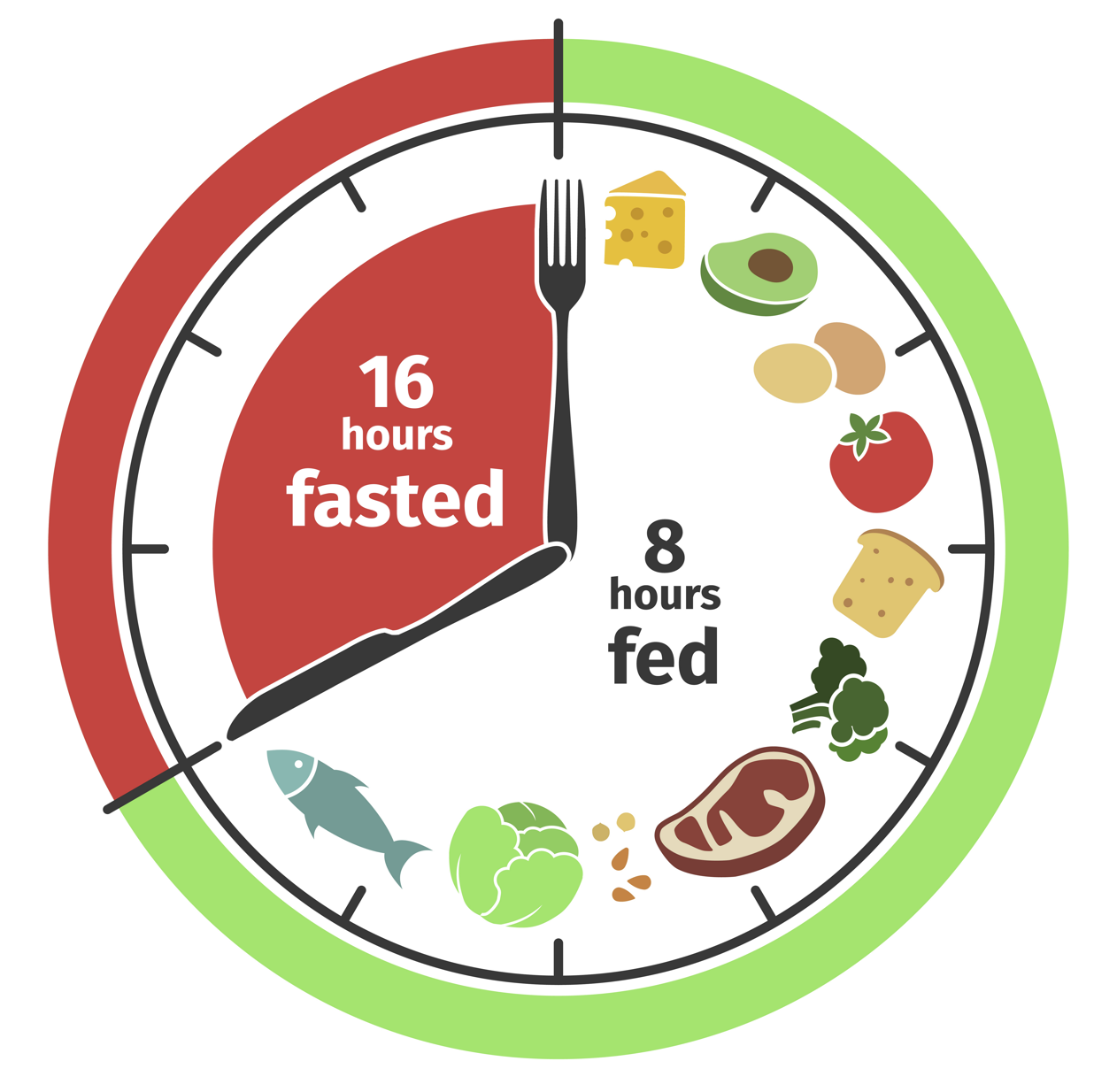Intermittent fasting (IF) has gained popularity as a weight loss strategy and a potential method for improving overall health. Promoted widely on social media and health platforms, IF involves alternating periods of fasting and eating. But is it truly as effective and beneficial as it’s often claimed to be? Here’s a closer look at what intermittent fasting entails and whether it lives up to the hype.
Understanding Intermittent Fasting
Intermittent fasting encompasses various eating patterns that alternate between fasting periods and eating periods. Common approaches include:
- Modified Fasting (5:2 Diet): Fasting on two non-consecutive days each week while eating normally on the remaining five days.
- Alternate-Day Fasting: Alternating between fasting days and days of normal eating without restrictions.
- Time-Restricted Eating: Limiting eating to a specific window each day (e.g., 8 hours) and fasting for the rest of the time. The 16:8 pattern, where you eat during an 8-hour window and fast for 16 hours, is particularly popular.
The Role of the Circadian Rhythm
Much of the research on intermittent fasting focuses on its effects on the body’s circadian rhythm—the internal 24-hour cycle that regulates various physiological processes such as sleep, metabolism, and hormone levels. Disrupting this rhythm by eating for extended periods may increase the risk of chronic diseases like heart disease, cancer, and type 2 diabetes. Intermittent fasting aims to mitigate this risk by extending the overnight fasting period and aligning eating patterns with the body’s natural rhythms.
Science-Backed Benefits of Intermittent Fasting
- Improved Cholesterol Levels: Studies suggest intermittent fasting can positively impact cholesterol levels by lowering total cholesterol, LDL (“bad”) cholesterol, and triglycerides while increasing HDL (“good”) cholesterol.
- Better Blood Sugar Control: IF can enhance blood sugar regulation, reduce insulin resistance, and improve insulin sensitivity, which may be beneficial for managing type 2 diabetes.
- Body Composition Changes: Intermittent fasting has been associated with weight loss and reduction in body fat. Patterns like 14:10 (14 hours fasting, 10 hours eating) have shown potential in improving metabolic syndrome markers.
- Additional Health Benefits: Evidence suggests that intermittent fasting may reduce inflammation, lower the risk of certain cancers, and support heart health. It is also being studied for its effects on longevity and neurodegenerative diseases like Parkinson’s.
Potential Downsides
Despite its benefits, intermittent fasting is not without drawbacks:
- Side Effects: Some individuals may experience increased hunger, irritability, mood swings, fatigue, and difficulty concentrating. Overeating during eating windows is also a common concern.
- Quality of Evidence: Much of the current research on intermittent fasting is based on animal studies, with limited high-quality human research. A review found that only a few of the claimed benefits of intermittent fasting are supported by robust evidence.
Alternatives to Intermittent Fasting
- Calorie Restriction: Reducing daily calorie intake by about 25% can offer similar health benefits, including weight loss and improved metabolic markers, without the need for fasting.
- Mediterranean Diet: Known for its heart-healthy benefits, the Mediterranean diet emphasizes fruits, vegetables, whole grains, and healthy fats. Research indicates that it can reduce the risk of heart disease, stroke, and certain cancers, achieving similar results to intermittent fasting without fasting.
The Bottom Line
Intermittent fasting offers several potential health benefits, including improved cholesterol levels, better blood sugar control, and changes in body composition. However, the majority of evidence comes from animal studies, and more rigorous human research is needed to confirm its long-term effects.
For those considering intermittent fasting, it’s essential to weigh the potential benefits against the possible downsides and explore alternative diets that might offer similar health benefits without the challenges associated with fasting.




+ There are no comments
Add yours